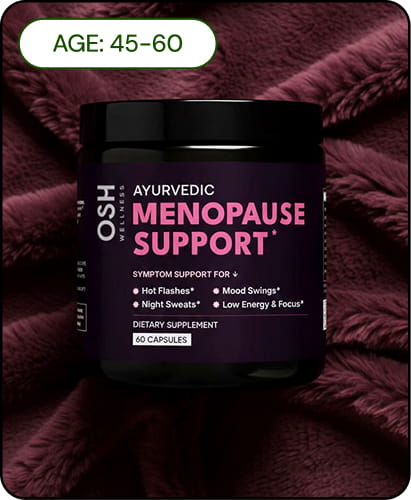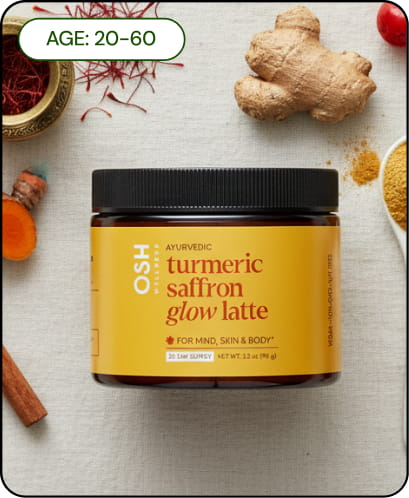Table of contents
Fenugreek has long been praised in traditional medicine for its potential to support breastfeeding mothers, especially when the milk supply is low. As a natural galactagogue (a substance that stimulates milk production), fenugreek is frequently used by nursing mothers who are seeking ways to boost lactation.
Despite its popularity, you may be wondering about fenugreek’s effectiveness, safety, and the best way to incorporate it into your breastfeeding routine. In this guide, we will examine fenugreek’s role in lactation, its benefits, potential side effects, and how to use it safely and effectively.
What is Fenugreek, and How Does It Support Lactation?

Fenugreek (Trigonella foenum-graecum) is an herb native to parts of Asia and the Mediterranean. Its seeds have been used for centuries in both culinary and medicinal applications. When it comes to lactation, fenugreek is believed to work by increasing the levels of prolactin, the hormone responsible for milk production. [ 1]
It contains phytoestrogens, compounds that mimic estrogen in the body, and galactomannan, a soluble fiber that can stimulate the mammary glands. Together, these properties contribute to fenugreek’s potential to boost milk supply.
Fenugreek is often touted as a natural remedy for low milk supply, with multiple studies finding positive results on milk production.
Research on Fenugreek’s Effectiveness for Lactation
Several studies have explored fenugreek’s ability to enhance lactation. For example, one study published in Phytotherapy Research found that mothers who took fenugreek saw a significant increase in milk production compared to those who didn’t. In this study, the participants who used fenugreek experienced a notable improvement in milk volume, suggesting that the herb may help lactation. [2]
However, another study found that while fenugreek initially increased supply, on days 8 and 15, mothers taking fenugreek had the same supply levels as those in the control group.
Some studies also study the impact of Fenugreek when combined with other natural herbs which can create a more significant impact in breastmilk production compared to fenugreek alone.
How to Use Fenugreek for Lactation: Safe Dosage and Administration

If you are ready to try fenugreek to boost your milk supply, it’s important to understand the proper dosage. Most recommendations suggest taking between 500-600 mg of fenugreek three times a day or 2-3 teaspoons of fenugreek powder daily. However, starting with a smaller dose can help to see how your body reacts and gradually increase the amount as needed.
For best results, consistency is key. Like many natural supplements, fenugreek’s effects may take time to build, and it’s important to be patient. Many women report seeing noticeable changes in their milk supply after a few days of regular use, but for some, it may take a week or longer to see significant improvement.
Ways to take Fenugreek

Fenugreek can be consumed in various forms, such as capsules, teas, or seeds, which can be soaked and added to meals.
Some women may not prefer the taste of fenugreek and capsules could help deliver the measured dose without any taste.
Osh Wellness Lactation Support contains the optimal dose of fenugreek blended with other milk-boosting herbs that work together to regulate milk supply naturally and gently.
Combining Fenugreek with Other Galactagogues

While fenugreek can be effective on its own, many mothers find that combining it with other herbs or galactagogues can enhance its effects. For example, Fennel is often used with fenugreek to reduce the risk of gastrointestinal side effects, such as bloating or diarrhoea. Fennel itself has mild estrogenic properties and may help to further stimulate milk production, while its carminative effects can help reduce gas and digestive discomfort.
Other herbs commonly used alongside fenugreek to support lactation include blessed thistle, milk thistle, and alfalfa. Blessed thistle is known for its ability to enhance milk production, and when used alongside fenugreek, it can have a synergistic effect, improving lactation outcomes. With its antioxidant properties, milk thistle can help support overall health while enhancing milk supply. Alfalfa, which is rich in vitamins and minerals, can also complement fenugreek in supporting milk production.
Combining fenugreek with other herbs can effectively enhance lactation while minimizing potential side effects. Osh Wellness Lactation Support contains the optimal blend of potent galactagogues that work together to regulate milk supply naturally and gently.
When Not to Take Fenugreek
Fenugreek is generally considered safe for most women , but several important precautions should be taken. In rare cases, it may cause side effects such as upset stomach, diarrhoea, or bloating. If you experience any of these symptoms, it’s a good idea to reduce the dose or discontinue use.
Another key consideration is the potential for allergic reactions. People who are allergic to peanuts or chickpeas may also be allergic to fenugreek, so it’s important to monitor for any signs of an allergic reaction, such as rashes, difficulty breathing, or swelling. If these symptoms occur, stop using fenugreek immediately and seek medical attention.
Women with diabetes should also exercise caution when using fenugreek, as the herb may lower blood sugar levels. If you are diabetic or have any concerns about blood sugar regulation, it’s important to consult with a healthcare provider before using fenugreek.
Fenugreek Alternatives: Exploring Other Galactagogues

While fenugreek is a popular and effective choice for enhancing lactation, it may work even better along with other herbs and nutrients. For mothers prefer to take a blend of milk boosting herbs, more comprehensive alternatives such as Osh Wellness Lactation Support can prove to be more effective than just fenugreek supplements. This formula includes moringa, which is rich in essential nutrients and is a known galactagogue; blessed thistle, a traditional herb known for boosting milk supply; fennel, which aids digestion while enhancing milk production; and Shatavari, a revered Ayurvedic herb with hormone-balancing properties.
These alternatives not only provide a safer option for those who cannot use fenugreek alone but also address broader postpartum health needs. By combining these natural ingredients, Osh Wellness Lactation Support offers a gentle and effective way to support nursing mothers while utilizing the milk-boosting properties of fenugreek. Always consult a healthcare provider before starting any supplement to ensure it aligns with your health needs.
Fenugreek — An Effective Aid for Lactation?
Fenugreek has shown promise as a natural remedy for boosting milk supply, and while the research is not conclusive, many mothers report positive results. The herb is generally safe for most women, although it’s important to be aware of potential side effects and contraindications, particularly for those with certain health conditions or allergies. If you decide to try fenugreek, it’s important to start with a lower dose, monitor your milk supply, and consult with a healthcare professional if you have any concerns.
For best results, you may consider combining fenugreek with other galactagogues, such as fennel, blessed thistle, or milk thistle, and moringa to support a healthy breastfeeding experience.
FAQs
How long does it take for fenugreek to increase milk supply?
Fenugreek can take 2-3 days to a week to show noticeable improvements in milk supply. Regular use and patience are key to seeing the benefits. For faster and sustainable results, consider taking Osh Lactation Support instead.
Can fenugreek cause weight gain?
While fenugreek is not directly linked to weight gain, some women may experience changes in appetite. Monitoring your diet and overall health is important when using any supplement.
Are there other natural ways to increase milk supply?
Yes! Herbs like blessed thistle, fennel, moringa, and milk thistle are commonly used to boost milk production. They can be used alone or in combination with fenugreek.
Can I use fenugreek if I’m not breastfeeding but want to induce lactation?
Fenugreek may be used in cases of induced lactation. However, it’s important to work closely with a healthcare provider to ensure safe and effective use.
References:
https://www.sciencedirect.com/science/article/pii/S1110663818300387
1. Reeder, Carol & Legrand, Anita & O'connor-Von, Susan. (2013). The Effect of Fenugreek on Milk Production and Prolactin Levels in Mothers of Preterm Infants. Clinical Lactation. 4. 159-165. 10.1891/2158-0782.4.4.159.
2. Khan TM, Wu DB, Dolzhenko AV. Effectiveness of fenugreek as a galactagogue: A network meta-analysis. Phytother Res. 2018 Mar;32(3):402-412. doi: 10.1002/ptr.5972. Epub 2017 Nov 30. PMID: 29193352.
3. Parrish, Britain & Brand, Garth. Is fenugreek effective at increasing breast milk production? Evidence-Based Practice. 24(11):p 49, November 2021. | doi: 10.1097/EBP.0000000000001309
4. Rania Mohamed Abdou, Mona Fathey. Evaluation of early postpartum fenugreek supplementation on expressed breast milk volume and prolactin levels variation. Egyptian Pediatric Association Gazette, Volume 66, Issue 3, 2018 https://doi.org/10.1016/j.epag.2018.07.003.








